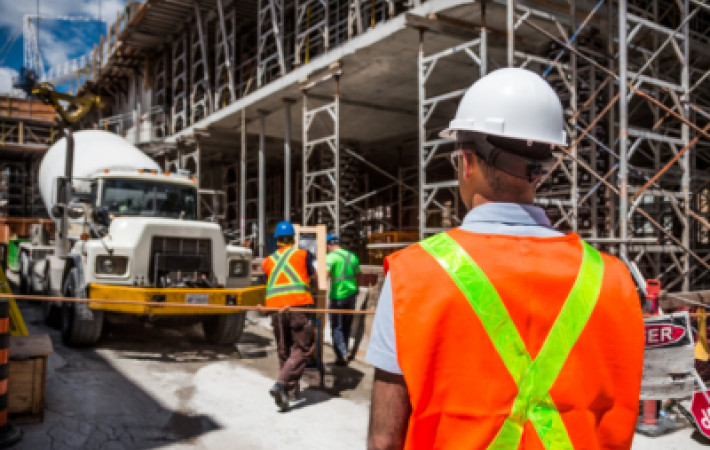27 April 2020
Construction and coronavirus – your guide

From building site safety to contract challenges and funding, here are some of the key issues to consider in the current climate
Health and safety
Three words that have always been the leading issue for the construction industry. But coronavirus means it’s suddenly become a whole lot more complex.
Where sites remain open, this advice on site operating procedures from the construction Leadership Council is essential reading. You should also seek professional advice on health and safety issues to ensure best practice is followed.
Contract challenges
You’ll need advice on the relevant clauses of building contracts and professional appointments. For example, what do they say about extensions of time, loss and expense?
JCT: Joint Contracts Tribunal forms might entitle a contractor to an extension of time for coronavirus-related delays but perhaps not to loss and expense.
NEC: Under New Engineering Contracts the contractor might be entitled to an extension of time and additional money.
Whatever the type of building contract, check if there are any existing amendments to it that might apply.
Your circumstances
It’s also important to be clear on the unique facts of your situation: in what ways has the virus caused delays or loss? And how can these losses and delays be mitigated? What are the parties’ duties and options?
Contract issues
If you’re serving a notice under a contract, make sure you check the relevant clause to ensure your notice is valid.
Commercial points
Is it in your interests to insist on absolute compliance with the contract or to exercise your rights to the full?
It may be that a unilateral suspension of work will trigger a right to terminate the contract and a substantial claim for damages.
Do employers and contractors want to stand by the letter of their contracts?
Beware: an employer who doesn’t want to compromise could find itself with an insolvent contractor and subcontractors.
Perhaps a deed varying the contract would be a good idea. If it is, it will require careful thought and bear in mind any parent company guarantor – it’s best to get the guarantor to join in any deed of variation to ensure they’re not accidentally released from liability. Consider also whether a bondsman might accidentally be released.
Termination and insolvency
If a contractor’s solvency is a worry or it might be necessary to terminate their employment under the building contract, perhaps for delay, or the contractor itself threatens to terminate its employment under the contract, do the employer and any funder, tenants and purchasers have in place all the collateral warranties or third-party rights they need?
If not, it might not be too late to get them. Some of those warranty forms might include step-in rights for the employer or funder or purchaser, entitling them to give direct instructions to the contractor’s professional team and sub-contractors. Those rights could be invaluable when trying to complete the project or maintain funding after the contractor’s insolvency or termination of its appointment.
Keep an open dialogue
Dialogue between parties is essential. Not just between employer and contractor but with the professional team, subcontractors, suppliers, insurers, funders and any purchasers, landlords, tenants and others. Establish your contractual position with them all urgently.
Insurance can cover: works, public and third-party liability, professional indemnity, business interruption and perhaps other risks. If there is to be a site shutdown, what are the requirements of the insurers? What needs to be done to protect against claims for nuisance from neighbours and to prevent risk of injury to the public? Care needs to be taken not to void insurances. Talk to your broker and find out what your insurers want and expect and get advice on policy wording.
Funding
What do the funding documents say and what do the funders need to protect their position? Are loans at risk of being called in?
Purchasers and tenants. Are there any sale contracts or agreements for lease in place? What do they say about delays and extra costs and so on?
Other issues
What are the employment law issues, for example?
These extraordinary times affect every aspect of your business. Don’t get caught out by not knowing what your contracts and the law or the industry guidance say.
Contact us
We’re still here for you throughout coronavirus. Just ask. For support and advice, contact Andrew Harbourne at our Lincoln office on andrew.harbourne@wilkinchapman.co.uk, 01522 515 591 or 07967 776 896.
Useful links
Readers might also be interested in some of the industry guidance available, such as: